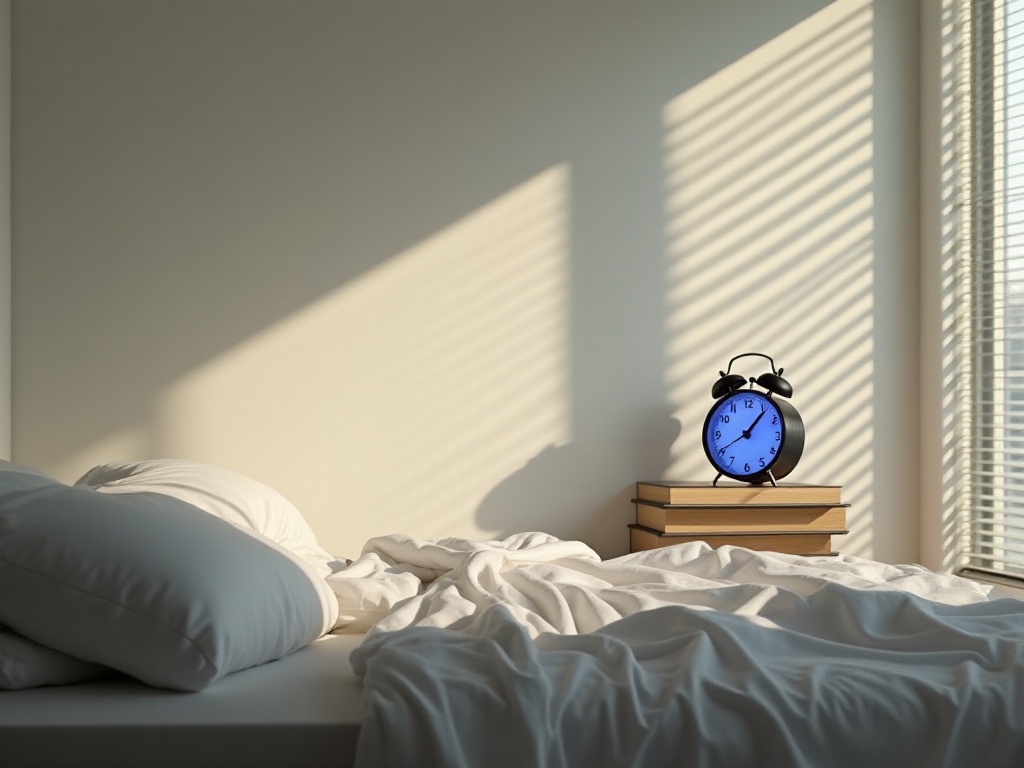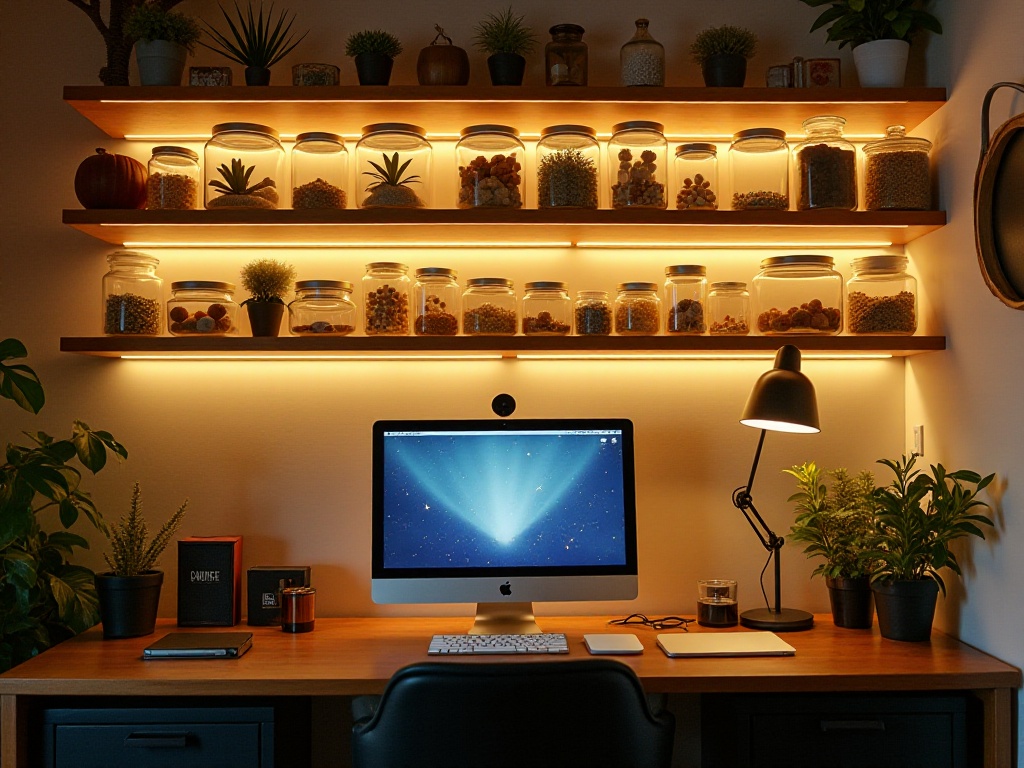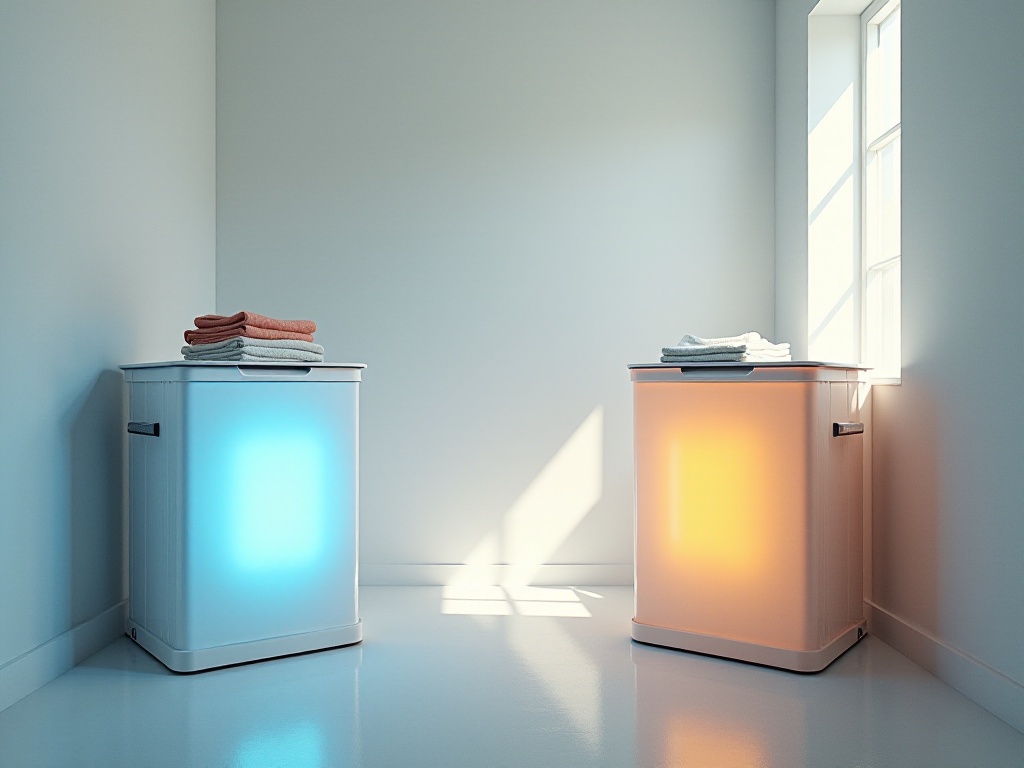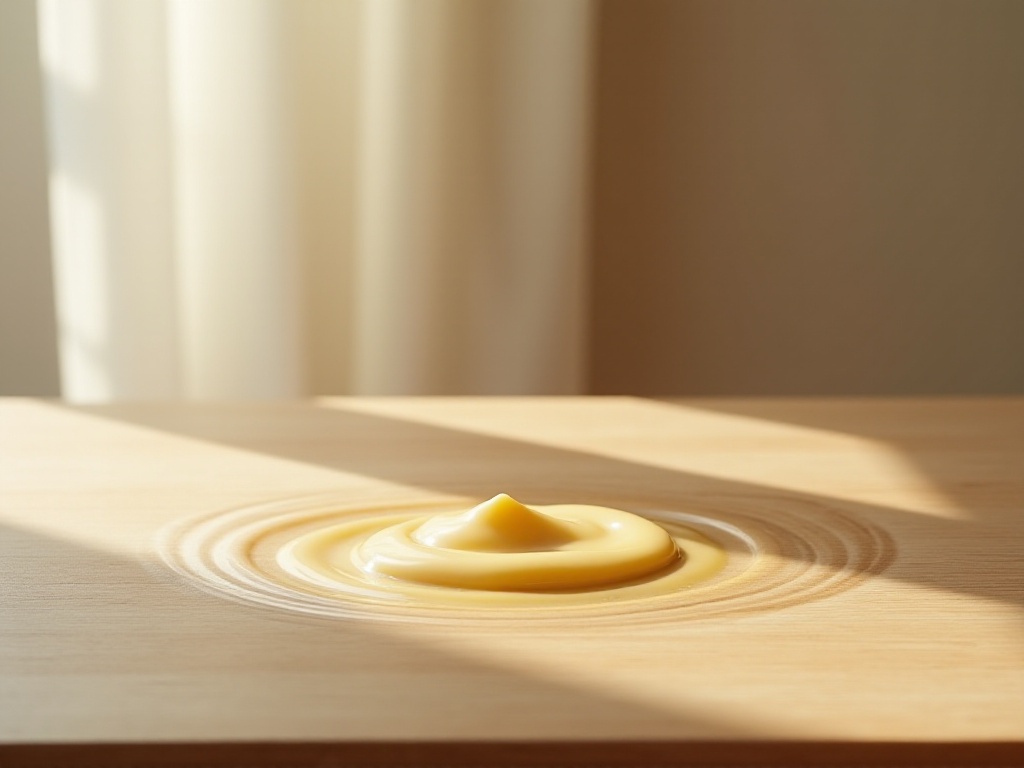Late Night Reflections
Lying in bed late at night scrolling through my phone, I recall this morning's chaotic scene: the alarm rang more than a dozen times without waking me up, resulting in another rushed arrival at work. This scenario plays out almost daily, nearly making me a "workplace liability."
As I lay in bed, I begin to reflect: why does every morning have to be so painful? I always think "I must get up early tomorrow" before bed, but come morning, I become a completely different person. This situation cannot continue, so I decided to thoroughly change my sleep habits.
After a period of exploration and trial, I finally found some practical tips. These methods not only helped me say goodbye to difficulty getting up but also made my life more orderly. Now, I can start each new day with abundant energy. This change has brought me not just regular sleep patterns but also an improvement in quality of life.
The Story of Getting Up
Speaking of my history with getting up, it's truly a "Les Misérables." Every morning involves an arduous battle: the alarm rings, I groggily reach out to turn it off, then roll over and continue sleeping. When I wake up again and find only twenty minutes left before work, I panic. Hastily washing up, throwing on clothes, and running out with messy hair. Living like this is both ungainly and exhausting.
Later, I discovered a simple yet effective method by chance: placing the alarm clock in the farthest corner of the room. This method seems basic, but works surprisingly well. When the alarm rings, I have to get up and walk across the room to turn it off. During this process, my body starts moving and my brain gradually wakens. By the time I reach the alarm, drowsiness has largely subsided.
This method works because it breaks our easiest window for falling back asleep. Sleep experts have found that within 15 minutes after turning off the alarm, the brain is still in a semi-sleep state, making it easiest to fall back into deep sleep. If we can get our body moving during this time, we can effectively avoid falling back asleep.
I also discovered an interesting phenomenon: when you actually walk to the alarm, you often think "since I'm up anyway, might as well stay up." This psychological suggestion also helps us stay awake. According to statistics, 90% of people using this method can fully wake up within 5 minutes after the alarm rings.
Besides alarm placement, choosing the right alarm is also important. I now use a progressive alarm that starts with gentle sounds and gradually increases volume. This wake-up method is much gentler than traditional alarms' "sudden attacks" and allows people to wake up in a more comfortable state.

Evening Preparation
After some time exploring, I gradually realized: the key to getting up easily lies in the preparation work the night before. Now I spend 15-20 minutes before bed preparing for the next day, a habit that has greatly improved my quality of life.
First is preparing the next day's clothes. Based on the weather forecast and schedule for the next day, I prepare all clothing items in advance, including underwear and socks. I fold them neatly in order of wearing, so getting dressed the next day is like completing a simple assembly task, without worrying about matching clothes.
Next is packing my bag. I check all the files, electronic devices, chargers, and other items needed for the next day to ensure they're in the bag. This not only prevents rushing around looking for things the next morning but also helps identify any missing important items in time.
Most importantly is preparing breakfast ingredients. I prepare all the ingredients needed for breakfast in advance, like taking bread out of the refrigerator to warm up and setting out the pots needed for boiling eggs. This way I only need simple operations to enjoy a delicious breakfast the next morning.
These preparations may seem tedious but actually take very little time to complete. More importantly, they greatly reduce pressure the next morning. Research data shows that people who prepare well before bed can reduce their morning rush time by about 40%. This means you can face the new day with a more composed mindset.
Besides material preparation, psychological preparation is also important. I briefly plan the next day's schedule before bed and record important matters. This allows the brain to enter a restful state without affecting sleep quality due to worry about forgetting important things.

Morning Ritual
Establishing a morning ritual was an important step in improving my quality of life. This ritual doesn't need to be complex, but must have regularity and ceremony. My morning ritual begins with making the bed.
When I first started developing the habit of making the bed, I thought it was an unnecessary action. But as time went on, I discovered this simple action could really bring a positive start to the day. As U.S. Navy Admiral William McRaven said, "If you want to change the world, start by making your bed." The small success of making the bed can give people a sense of achievement, making them feel like they've completed their first task of the new day.
Placing a large water glass by the bed is my second ritual. Drinking 300-500ml of water immediately after waking has benefits beyond imagination. Medical research shows that during longer sleep periods, the body becomes slightly dehydrated. Replenishing water in the morning not only helps wake up the body but also promotes metabolism and increases energy levels for the day.
I've also developed a habit of light morning exercise. It doesn't need to be intense exercise; simple stretching or 5 minutes of jump rope will do. These exercises can promote blood circulation and help the brain enter work mode faster. Research shows that people who exercise in the morning have 30% better concentration at work than those who don't.
The choice of curtains is also an important factor. I chose curtains with weaker light blocking so morning sunlight can naturally shine through, helping regulate the body's biological rhythm. The blue light in sunlight can inhibit melatonin secretion, helping people wake up faster.

Storage Organization
When it comes to improving life efficiency, storage organization is an unavoidable topic. I remember always putting things down randomly before, resulting in having to turn everything upside down every time I looked for something, not only wasting time but also affecting mood.
Now I implement the principle of "everything has its place." Each item has its fixed storage location and must be returned after use. This habit does require some extra time and effort to execute at first, but as time goes on, it becomes a natural behavior.
My storage system is mainly divided into three levels: frequently used items are placed in the most accessible positions, occasionally used items in secondary positions, and rarely used items can be stored in more distant locations. This classification method has made my life more efficient.
Data shows that ordinary people spend an average of 150 hours per year looking for things, equivalent to more than 6 full days. People who have established item storage systems can reduce this time to less than 30 hours. This saved time can be used to do more meaningful things.
Besides fixed storage locations, I also regularly clean out items. I do a deep organization every three months, categorizing unnecessary items: sell what can be sold, donate what can be donated, and throw away what's truly useless. This not only keeps the house tidy but also avoids space waste from item accumulation.

Clothing Management
Among all items needing management, clothing might be the most headache-inducing category. They are numerous, update quickly, and can easily become messy. After continuous exploration, I finally found a clothing management method that suits me.
First is categorized storage. I now use two laundry baskets for dark and light-colored clothes respectively, so there's no need to re-categorize when doing laundry. Additionally, I store clothes by season. Current season clothes are placed in the most accessible positions, while off-season clothes are stored in storage boxes.
Second is developing a "one-touch" habit. This concept originates from Japanese storage philosophy, meaning each piece of clothing is only handled once: worn clothes are either determined fit for another wear and immediately hung back in the closet or placed directly in the laundry basket. Never allow random piling on chairs or beds. Research shows this habit can reduce clothing organization time by 60%.
For closet organization, I adopted the "vertical storage" method. Folding clothes into rectangles and storing them vertically not only allows seeing all clothes at a glance but also prevents messing up other clothes when taking items out. Although this folding method takes a bit more time initially, it saves much organization time in the long run.
Regular clearing out is also an important part of clothing management. I do a big inspection of clothes during season changes: clearing out clothes that no longer fit, are outdated, or damaged. This not only keeps the closet tidy but also helps me better understand my clothing situation and avoid duplicate purchases.

Concluding Thoughts
Through practicing these life tips, I deeply realize: improving life quality doesn't require earth-shattering changes, but rather these seemingly small yet actually important habits. Each small habit is like a puzzle piece; when correctly combined, they can construct a more beautiful life picture.
These changes have brought me not just time savings but also a transformation in life attitude. When your life becomes orderly, you'll find yourself becoming more confident and efficient in doing things. Most importantly, this change allows me to face life and work in a better state every day.
Actually, everyone can find the lifestyle that suits them best. What's important is having the determination to change and persisting consistently. This process might have some difficulties, but when you truly experience the benefits these changes bring, you'll find it's all worth it.
The sharing of these experiences ends here, but I believe everyone has their own life wisdom. Do you also have some useful life tips? Or which methods I shared are you planning to try? Looking forward to seeing more people's thoughts and experience sharing in the comments section. Let's work together to live life a bit better.




